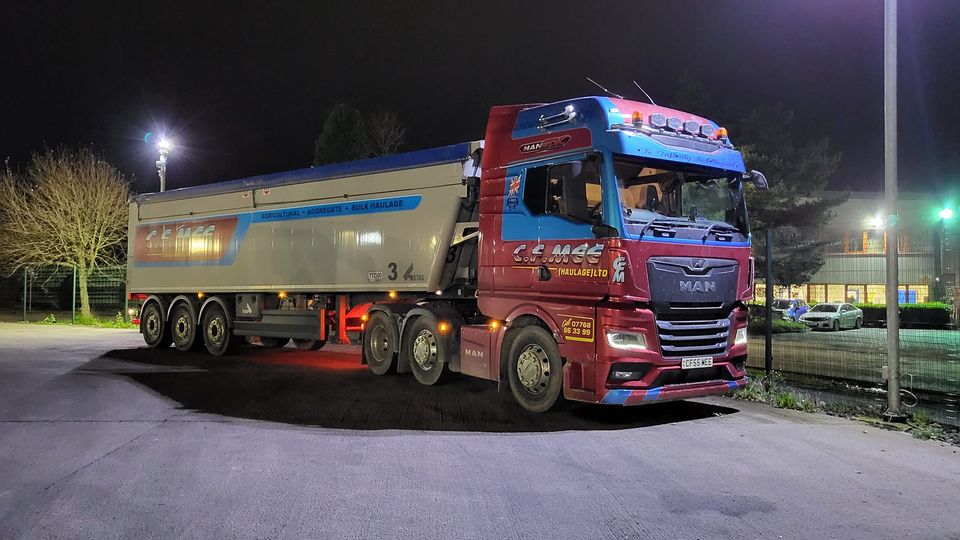The Issue Of Rising Fleet Maintenance Costs
As a business owner, you can expect to see fluctuations in your finances. Fleet maintenance costs can differ from month to month, making it hard to plan your finances at the best of times. However, when your expenses are all heading in one direction – up – it might be time to start looking at new ways to address the situation.
We all understand that the costs involved with running a fleet of vehicles consist of much more than the initial purchase price. Managing a large fleet of commercial vehicles is time-consuming for your organisation, which is where a fleet management guide and the right software may be able to help.
Your fleet is an essential part of your operation. But if your vehicles are constantly costing you money, your profits will be suffering. The good news is that you can instantly reduce your fleet maintenance costs with a digital transport management system.
Why Is It Necessary To Calculate Your Fleet Maintenance Cost?
One of the benefits of fleet management is the ability to easily calculate your business costs, allowing you to be financially prepared for the future. Typical fleet maintenance costs include capital expenditures, repairs, depreciation and licensing. These costs are also known as the fleet’s total cost of ownership (TCO). A high TCO can indicate a need to replace outdated vehicles or switch to fleet leasing.
TCO calculations are just one aspect that shows the importance of fleet asset management and are a significant factor in maintaining fleet performance. In other words, if you regularly calculate your TCO, you’ll better understand when to make repairs or new additions to your fleet, to maximise your profit.
Types Of Fleet Maintenance Costs
To effectively calculate your truck fleet maintenance costs, you’ll need to know how your fleet is costing you money. We have highlighted some of the main areas to consider.
Capital for purchase
One of the highest initial outlays for your business is the purchase of assets, whether a new vehicle or parts required in the regular maintenance of your fleet. It is essential for the smooth operation of the company to have money available to account for situations like this.
Repair costs
Without your fleet, your business would come to a standstill, so repair costs are an essential expenditure. Truck fleet maintenance is a priority, and costs will usually come in the form of repairing wear and tear to your vehicles.
Depreciation of fleet
Fleet maintenance is a rising cost as your trucks age. As previously mentioned in this article, the higher the calculated TCO of a vehicle, the higher the cost of maintaining it will be.
Administration and licensing costs
Administration and licensing are not as tightly tied to the physical health of your vehicle as other aspects of your TCO, but they can add up quickly. The cost of these licences can change depending on the fleet and vehicle type.
How To Manage Rising Fleet Maintenance Costs
Once you have identified your fleet maintenance costs, the next step is managing them. It’s vital to prevent costs from spiralling out of control, and addressing the issue quickly is key. Let’s explore how you can manage your rising fleet maintenance costs by making a few simple changes.
Using technology to your advantage
Fleet maintenance software is a unique tool, from visibility into all aspects of your company’s processes to recognising new opportunities to minimise truck fleet maintenance costs. It’s not hard to see why using technology is one of our first tips to reduce fleet costs.
Manage fuel expenses
Fuel is a variable cost, but it’s critical to keep track of both the cost and consumption of fuel regarding your assets. By calculating the average cost of fuel per kilometre travelled, you can anticipate future fuel expenses. It’s a big task to keep track of every fuel receipt and manually enter them into a spreadsheet. A fleet management system will significantly reduce the time needed to complete this task.
Install GPS tracking software
GPS fleet tracking software gives you constant access to real-time data about your drivers’ fuel usage and location. It also alerts you to any concerning events, such as aggressive driving or potential vehicle theft. By tracking fleet management effectively, you will have a constant overview of your fleet’s performance that can help you pinpoint and resolve issues to lower your TCO.
Optimise your route planning
Based on real-time traffic data, GPS routing generates the quickest route to your drivers’ destination, saving your team time and saving you money. With less time on the road, your vehicle will see less wear and tear, which will decrease your depreciation and repair costs.
Replace old vehicles
There’s a point at which the cost of operating an old vehicle exceeds the cost of purchasing a new one. Extra truck fleet maintenance costs originate from vehicles requiring frequent repairs and operating inefficiently. A TCO can help you see when it’s time to replace ageing assets.
Prioritise preventative maintenance
Scheduled maintenance costs can be easier to prepare for than emergency repairs. Knowing how long a service will take and how many tools and employees you’ll need for the job allows for more accurate budgeting. Planning and, more crucially, carrying out a consistent maintenance schedule results in a more organised operation, which translates to lower costs.
Have strong inventory management for parts
A fleet management programme can generate significant savings if a strong inventory plan is part of a truck fleet maintenance programme. Technicians can execute service and repair work more quickly and efficiently when the correct parts are available where and when they are needed, minimising labour expenses. Truck fleet maintenance costs will grow if the parts required for repairs need to be ordered, with all the delays involved.
In Summary…
When you’re tasked with managing fleet business costs, it’s vital to have all the information available to make informed and financially beneficial business decisions. Whether calculating the TCO on your assets, evaluating leasing vs buying fleet vehicles, or scheduling routine maintenance for your existing fleet, a MyTrucking fleet management system is the perfect solution.
External Links
For more information on the topics covered, go to;




